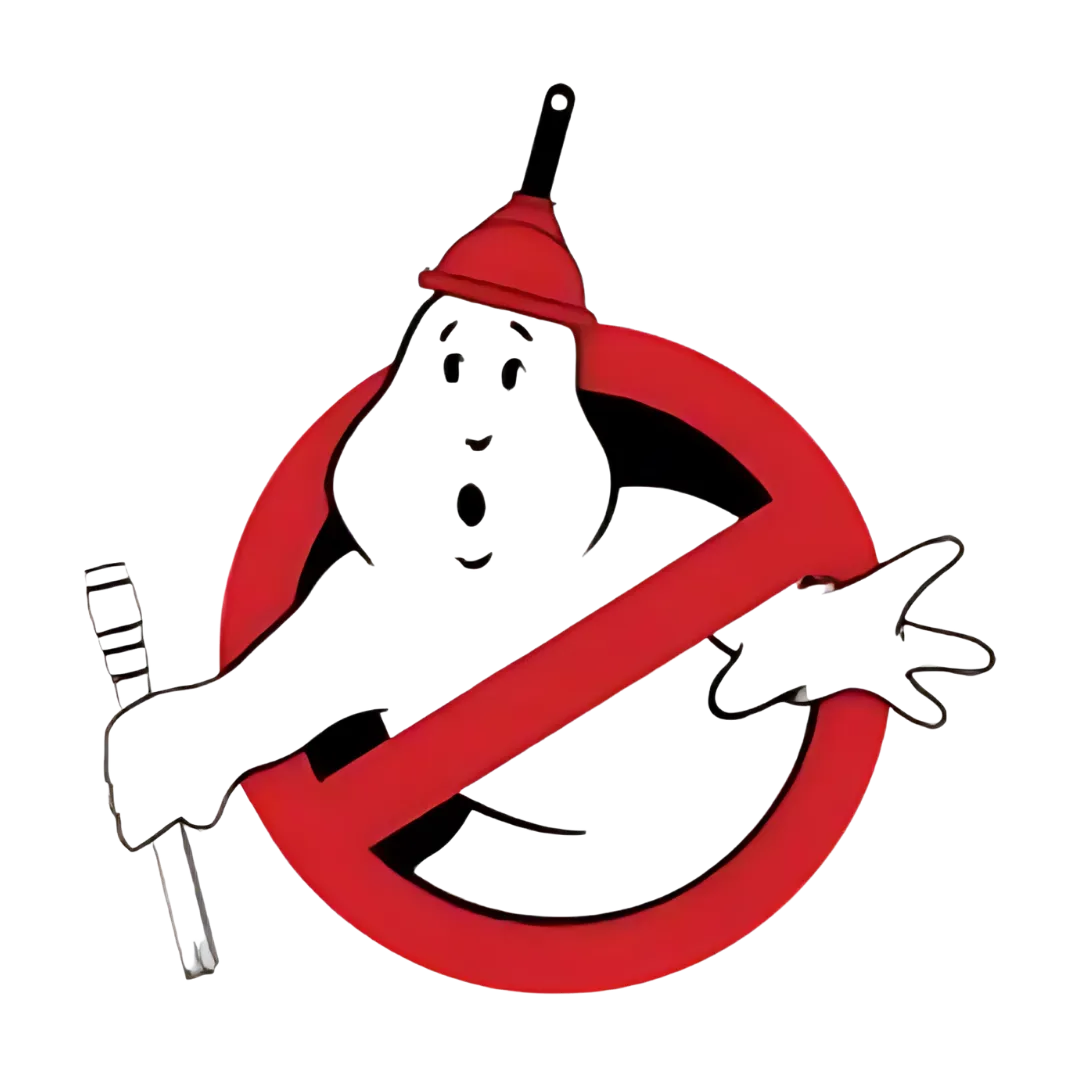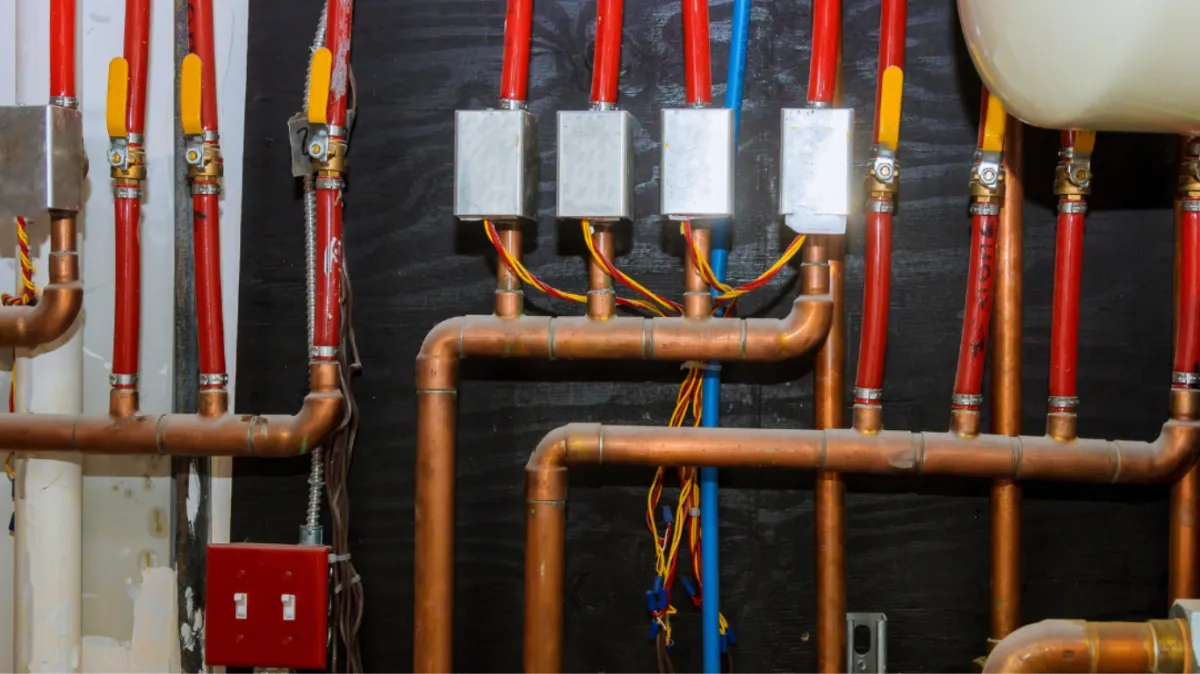
Foster City Plumbing Journal
By Drain Busters Plumbing

Gas Safety Month: Keeping Your Home Secure
Why Gas Line Maintenance Is Crucial
Your gas line system is a vital part of your home, but it often goes unnoticed until a problem arises. Regular maintenance ensures safety, efficiency, and peace of mind. Here’s why keeping your gas lines in top condition is essential:
1. Prevent Dangerous Gas Leaks
Gas leaks are a serious hazard that can lead to health risks, property damage, and even explosions. Maintenance helps identify and resolve small issues before they escalate.
Corrosion Prevention: Regular checks prevent rust from weakening gas pipes.
Joint and Connection Integrity: Loose fittings or deteriorated joints can lead to leaks.
Minimized Fire Risk: Leaks increase the risk of accidental ignition in your home.
2. Maximize Appliance Efficiency
Gas-powered appliances rely on a steady, unobstructed supply to function properly. Well-maintained gas lines ensure consistent performance.
Optimized Heating: Furnaces and water heaters operate more efficiently, saving energy and reducing costs.
Prolonged Appliance Lifespan: Clean, efficient gas lines reduce wear and tear on connected appliances.
Stable Flame Quality: Proper maintenance ensures consistent flame output for stoves and grills, improving cooking performance.
3. Reduce Long-Term Costs
Ignoring small issues can lead to costly repairs or even complete gas line replacements. Proactive care saves money by addressing problems early.
Repair vs. Replacement: Fixing minor leaks is far more affordable than replacing an entire system.
Avoid Utility Overcharges: Leaks can lead to higher gas bills due to wasted fuel.
Prevent Structural Damage: Gas leaks can weaken walls or ceilings, adding repair costs beyond the gas system itself.
4. Ensure Family Safety
The safety of your family should always be a top priority. Proper maintenance protects your household from hidden dangers.
Carbon Monoxide Risks: A malfunctioning gas line can release this odorless, invisible, and potentially deadly gas.
Health Hazards: Prolonged exposure to leaking gas can cause nausea, headaches, and respiratory issues.
Emergency Readiness: Regular inspections prepare your home to handle gas emergencies, reducing panic and damage during unexpected events.
5. Stay Compliant with Regulations
Gas line systems are subject to safety codes and regulations. Maintenance ensures your home remains compliant and avoids penalties.
Inspection Requirements: Annual checks may be required for insurance or property resale.
Safety Certification: Proper maintenance keeps your home up to standard, ensuring a safer living environment.
6. Protect the Environment
Gas leaks don’t just affect your home—they contribute to environmental harm by releasing greenhouse gases like methane.
Reduced Emissions: Well-maintained systems minimize the release of harmful gases into the atmosphere.
Eco-Friendly Practices: Keeping your system efficient supports broader sustainability goals
Signs Your Gas Lines Need Attention
Recognizing the early signs of gas line issues can help you address problems before they become emergencies. If you notice any of these warning signs, it’s crucial to contact a professional immediately:
1. Rotten Egg Smell
Purpose of the Smell: Natural gas is odorless, so providers add a sulfur-like scent to help homeowners detect leaks.
Where to Check: Pay attention to basements, near appliances, or around outdoor gas lines for this distinctive odor.
Action Needed: Evacuate the area immediately and contact your gas provider or a professional plumber.
2. Hissing or Whistling Sounds
Source of the Noise: Escaping gas can produce a faint hissing or whistling noise near gas lines or appliances.
Potential Causes: Loose connections, damaged pipes, or punctures in the line.
What It Means: A hissing sound indicates an active gas leak, which can be highly dangerous if ignored.
3. Dead or Discolored Vegetation
Visible Clues: Patches of dead or yellowing grass, plants, or vegetation above a buried gas line can signal a leak.
Why It Happens: Escaping gas displaces oxygen in the soil, suffocating nearby plants.
Where to Look: Inspect areas near outdoor gas lines, meters, or underground connections for these changes.
4. Higher Utility Bills
Unexplained Spikes: A sudden increase in your gas bill without a change in usage habits could indicate a leak or inefficiency.
Why It Matters: Leaks waste gas, causing your system to consume more fuel to maintain performance.
Next Steps: Compare past bills to identify unusual trends and schedule an inspection if costs are significantly higher.
5. Visible Rust or Damage on Pipes
Signs of Wear: Look for corrosion, rust spots, dents, or cracks on exposed gas pipes, especially in unprotected outdoor areas.
Common Causes: Exposure to moisture, physical impact, or long-term wear and tear.
Impact: Compromised pipes are more likely to develop leaks and pose a safety hazard.
6. Malfunctioning Appliances
Indicators of Trouble: Appliances like stoves, furnaces, or water heaters may show signs of poor performance, such as:
Pilot lights frequently going out.
Uneven flame patterns or yellow flames instead of blue.
Reduced heating efficiency or unusual noises.
What It Means: Malfunctioning appliances may signal an issue with the gas supply or pressure.
7. Physical Symptoms of Gas Exposure
Health Effects: Prolonged exposure to natural gas leaks can cause:
Headaches, nausea, or dizziness.
Difficulty breathing or fatigue.
Eye or throat irritation.
Immediate Action: Leave the area, seek fresh air, and consult medical attention if symptoms persist.
8. Gas Meter Activity When Everything Is Off
Check Your Meter: If the meter continues to run even when all gas-powered appliances are off, it could indicate a hidden leak.
What to Do: Monitor the meter closely and contact a professional for further inspection.
Why Choose Drain Busters Plumbing?
When it comes to your home’s gas line safety, trust the experts at Drain Busters Plumbing. Here’s what sets us apart:
18 Years of Experience: Our team has the expertise to handle residential and commercial gas line systems.
Advanced Tools and Techniques: We use the latest technology, including gas leak detection equipment and video inspections, to ensure accurate results.
24/7 Emergency Service: Gas line issues can happen anytime. We’re available around the clock to address emergencies promptly.
Licensed and Insured Professionals: Rest easy knowing your home is in the hands of certified experts.
Gas line safety is not something to overlook. Protect your home and family by scheduling an inspection with Drain Busters Plumbing this Gas Safety Month. Call us at 415-830-0325 or visit our website [https://drainbustersfc.com/ ] to book your appointment.

Schedule a Professional Inspection
Ready to schedule a professional inspection? Contact us today.

